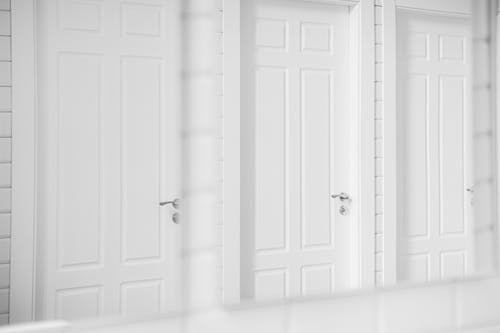From the room next door (revisited)
By Christina Ryan DLI CEO
Disabled people are consigned to the room next door.
Disability leadership happens in the rooms next door.
Few disabled people are in positions of power and decision making; we rarely sit on the boards, in the parliaments, or on the executive teams, even when disability is the central issue being discussed. Disability leaders are consigned to advisory groups and must tap politely on the door to be heard, waiting for the moment when it suits those inside.
Recently, Disability Leadership Institute members have been discussing anger and being angry. It seems many of us are angry a lot of the time. Being angry is a natural consequence of being constantly marginalised and told you do not belong, you don’t fit. Anger is also what happens when we see injustice all around us.
We tap politely on the door and ask to be remembered:
– when pandemic plans are being formulated;
– when vaccination is being rolled out;
– when we require adjustments at work;
– we tap politely so that we can participate equally in meetings; and,
– when policy about our services is being designed.
Yet we are consistently ignored, told others know best, or just forgotten.
Disability leaders consistently see non-disabled people speaking for us; we notice the issues we raise are not listened to; and we see disabled people being harmed or dying because of gaps in policy and action. DLI members have talked about becoming angry, and then being told to be polite, to be nice when raising critical issues, otherwise we will not be listened to.
Denying the anger of someone is a way of shutting them down. It is a form of silencing. It has become a tool of the privileged inside the room, used to marginalise those who are outside. Rather than show leadership by listening to anger, and understand the causes of that anger, those in power and authority close inward and suggest we are emotional or hysterical. Our anger is turned back upon us as a weakness that proves we are incapable of leadership or clarity.
Anger is not aggression, nor is being angry rude. We are told we should not be angry, yet it is only when we become angry that our experience of discrimination and marginalisation becomes clear to others. Our anger is rejected and silenced by those who have marginalised our voices and our expertise. The privilege of rejecting anger belongs to those who get to decide what is listened to and what is not. These are unlikely to be disabled people because disabled people are rarely in positions of power and authority. Disabled people are consigned to the room next door.
Why should disability leaders be silent about the levels of violence we see, or about being forgotten in pandemic policy, or being deprioritised in the vaccination rollout, or when poor government policy is imposed upon us, or when we are overlooked for senior appointments yet again?
Being angry does not mean being rude, although it is sometimes interpreted this way. Being angry does not mean being aggressive, although it is often interpreted this way by those we are raising issues with. Being angry does not mean being destructive, although we are often trying to deconstruct systems of oppression when expressing anger.
Disability leaders are highly constructive about being angry about violence, marginalisation, oppression, and the deaths of members of our community through poor policy or inaction. We are experts in using our anger to make a difference; recognising its impact and making it count. We are experts in being polite about being in the room next door, left out of decision making with our expertise unrecognised. Anger has become a necessary part of how we do leadership.
Our anger can make others uncomfortable, but it is through our anger that those in positions of power and authority (the people inside the room) realise that we do not accept what they are saying, or the consequences of leaving us in the room next door. We do not accept their discrimination. Our anger threatens their power and authority, it reminds them that their decisions are poor, and their expertise is lacking.
This anger will not subside until we no longer need to tap politely on the door, until we are part of decision making and policy development, until we sit inside the rooms of power and authority. Until we are equal.
(This article is revisited, it was first published by the DLI in 2021).
Sign up for regular updates from the Disability Leadership Institute.
Christina Ryan is the CEO of the Disability Leadership Institute, which provides professional development and support for disability leaders. She identifies as a disabled person



